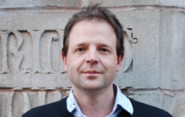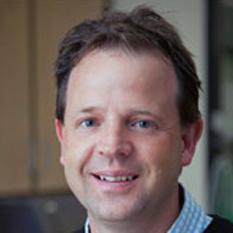Peccia Wins 2016 Ackerman Award for Teaching and Mentoring

On the first day of class, Prof. Jordan Peccia asks each of his students for three things: their names, their pictures and an interesting fact about themselves. After a week or two of some very intense study, Peccia has it all committed to memory.
 "I do that because the only way learn actively and to be motivated is to feel that there's some sort of relationship between the professor and the class," said Peccia, Associate Professor of Chemical & Environmental Engineering. "It's important to me to know a little about them so I know they're engaged and how they respond to things, and maybe I can tailor the class a little to what they're interested in."
"I do that because the only way learn actively and to be motivated is to feel that there's some sort of relationship between the professor and the class," said Peccia, Associate Professor of Chemical & Environmental Engineering. "It's important to me to know a little about them so I know they're engaged and how they respond to things, and maybe I can tailor the class a little to what they're interested in."
That kind of attention to detail was one of the many reasons Peccia has been selected to receive the 2016 Ackerman Award for Teaching and Mentoring. Made possible by a generous gift from SEAS alum Robert W. Ackerman '60, this annual award, which includes a $5,000 cash prize, recognizes outstanding teaching and mentoring as evidenced by the faculty member's impact on, and involvement with, students.
His dedication to students was cited numerous times in letters of support of his nomination for the award. A recurring theme was his approachability and accessibility to students, who described him as enthusiastic, authentic, genuine, and friendly. Recent graduate students highlighted his patient and calm mentorship, and his ability to see the best in his students and develop their self-confidence.
"The core of my philosophy is that I try to build a connection with the students," he said. "That's what I really try to do, and what I think teaching is really all about."
The nominating letters also focused on how his teaching brings out the human side of engineering and demonstrates social consciousness, something that's reflected in his role as faculty advisor to the Yale chapter of Engineers without Borders (he's currently preparing for a trip to Cameroon for the latest EWB project).
Interactivity is another hallmark of his teaching. His preference for writing on blackboards over pointing to overhead projections means that he has to think on his feet, and so do his students.
"It's so much more valuable than having a perfectly rehearsed presentation," he said. "And students get to see how you think, and they get engaged enough to start asking you questions, which produces some give and take."
Peccia said he wants his students to understand why they should care about the subject matter. For instance, in his Introduction to Environmental Engineering course, he talks about risks - whether it's riding a motorcycle or living in an area with high levels of trichloroethylene, a commonly used cleaning solvent.
"Something like that gets a class very engaged and interested in risk, and perceptions and tolerance of risk," he said. "I always try to talk about what the implications are, what the practical applications are, and use that as motivation to learn theory.
"It tells them, 'This is how it affects you, or how you can make a difference. Now you're one of the people who understand this, and can change things.'"

